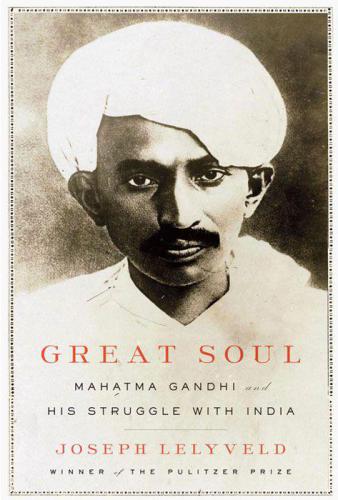
Great Soul
کتاب های مرتبط
- اطلاعات
- نقد و بررسی
- دیدگاه کاربران
نقد و بررسی

January 10, 2011
In this rigorous biography of India's beloved political and spiritual leader, Lelyveld (Move Your Shadow) offers an unexpected perspective on Mohandas Karamchand Gandhi (1869–1948), one that focuses more on his failures and vexations than triumphs. Gandhi dreamed of Hindu-Muslim solidarity in a united, autonomous India (a hope dashed with the 1947 partition that split off Pakistan); acceptance of lower castes by upper-caste Hindus (still only partially accomplished); an economy built around cottage industries in self-sufficient villages (a quixotic fantasy). This program proved far more difficult than evicting the British, Lelyveld notes, and earned the Mahatma hatred—and, finally, assassination—in an India riven by sectarian animosity and caste prejudice. Lelyveld pairs a sympathetic but critical analysis of Gandhi's politics with a vivid portrait of the Mahatma's charismatic strangeness: his makeover from business-suited, English-educated upper-caste lawyer to loincloth-clad sage; his odd diet and abhorrence of sex; his strained family life. A stirring, evenhanded account that relates the failure of Gandhi's politics of saintliness while attesting to its enduring power. Photos.

Starred review from January 1, 2011
A thorough sifting of the often contradictory life pursuit of Gandhi (1869–1948), from South African barrister to the Mahatma.
Pulitzer Prize–winning former New York Times correspondent and editor Lelyveld (Omaha Blues: A Memory Loop, 2005, etc.) tackles the paradoxes inherent in Gandhi's philosophy of satyagraha, or "firmness in truth"—his version of passive resistance in the face of social injustice, which he honed from his first journalistic writings in South Africa to his epic final demonstrations for Hindu-Muslim harmony shortly before his assassination. The author painstakingly examines the primary sources in Gandhi's life to provide a rich, multilayered portrait of the evolution of his thought and action—no easy feat, since the Mahatma's philosophy changed constantly, especially in the early days in South Africa, which served for two decades as his "laboratory" in which to test his ideas of civil disobedience, chastity, communal living, vegetarianism and winning rights for minorities, especially the untouchables. The last months of his stay in South Africa proved crucial, as he put himself on the line for the "coolies" he had heretofore defended in print by organizing a collective strike of indentured servants in Natal. This unleashed "a collective spasm of resentment and hope" that he took back to India in his larger crusade against the strictures of the caste system. Although he claimed always to believe in the equality of all men, Gandhi did not make the leap in the early South African struggle between the plight of the blacks (the "kaffir") and the Indian untouchables, and only later took up the cause of the minority Muslims (for which he was killed). "To say that Gandhi wasn't absolutely consistent isn't to convict him of hypocrisy," writes Lelyveld. "It's to acknowledge that he was a political leader preoccupied with the task of building a nation, or sometimes just holding it together." The author delves deeply into the episodes that tested, and tightened, his convictions along the way: challenging the concept of "pollution" by infiltrating the Vaikom temple in a mass demonstration in 1924; his determination to "fast unto death" to ensure untouchable representation in Congress; eight years practicing what he preached at the Wardha ashram.
An impassioned, carefully executed work of research.
(COPYRIGHT (2011) KIRKUS REVIEWS/NIELSEN BUSINESS MEDIA, INC. ALL RIGHTS RESERVED.)

October 15, 2010
A Pulitzer Prize winner, George Polk Award winner (twice), and New York Times fixture for four decades, Lelyveld here aims to give us the real Gandhi--the one who sometimes succeeded (spectacularly) and sometimes failed. Another way to understand India, ever more in the news; with a six-city tour.
Copyright 2010 Library Journal, LLC Used with permission.

























دیدگاه کاربران